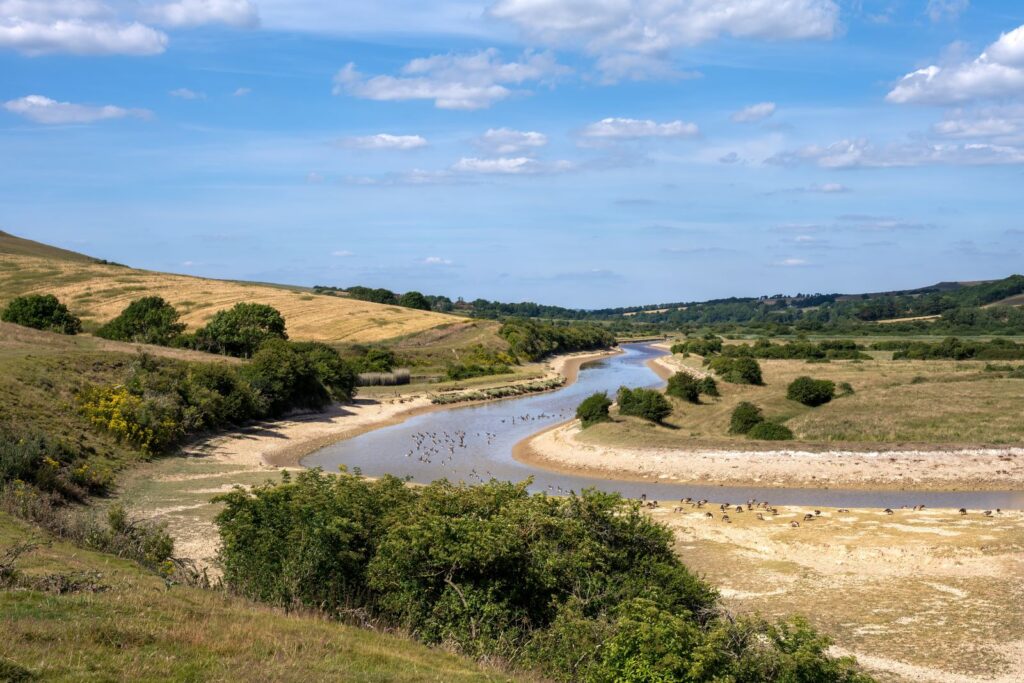Work must go on to prepare for future drought and extreme heat, experts say
25th July 2023
Despite recent rainfall, the Environment Agency is urging farmers, water companies, and the general public to maintain collective action on protecting water resources in preparation for future droughts and weather extremes.
Parts of the country are still recovering from last summer’s hot and dry weather, with Devon, Cornwall and parts of East Anglia expected to remain in drought until at least winter.
Hosepipe bans are sill in force in Devon and Cornwall to help manage low reservoir supplies, as well as in Kent and Sussex due to increased demand for water in recent hot weather.
Managing water resources
Last week, the National Drought Group (NDG), chaired by Environment Agency (EA) executive director John Leyland, discussed how to best manage water resources and ensure preparedness if hot, dry weather returns this year.
The group, which includes senior decision makers from the Environment Agency, government, water companies and key farming and environmental groups, also discussed how past weather patterns are no longer reliable predictors of future events, and that the best time to conserve water is when it is raining.
Mr Leyland commented: “Our climate is changing – this year we’ve seen more record-breaking temperatures in the UK, historically wet months followed by historically dry months, and an extreme heatwave sweeping through southern Europe.
“The Environment Agency will continue to work collaboratively across the water sector to manage drought risk, including ensuring water companies implement their drought plans, managing abstraction licenses and helping farmers to manage resources.“
Do not rely on recent rainfall
Following record temperatures in June this year, ample rainfall throughout most of July has helped restore river flows in many parts of the country. As of the 19th July, total reservoir capacity across England is 79% full, with the country having had 65mm of rainfall so far this month.
Although water supplies stand somewhat replenished at present, the NDG has warned the situation could regress if hot, dry weather returns later in the summer.
Water minister Rebecca Pow assured the government is taking steps to ensure England’s water system is resilient and prepared for future droughts.
“Through our Plan for Water, we are funding more on-farm reservoirs and better irrigation equipment for farmers, have secured significant investment to increase our water resilience, and are ensuring key water supply infrastructure, such as reservoirs, can be built more quickly.”
Dry July campaign
The NDG’s meeting last week coincided with Waterwise’s Dry July campaign, which ran from 17th – 28th July. The campaign highlighted how everyone can contribute to using water more wisely and ensuring water consumption is environmentally sustainable.
Nicci Russell, Waterwise chief executive, said “Last year, some parts of the country saw unprecedented weather conditions with the driest July since the 1930s and scorching heat, the declaration of drought and hosepipe bans for millions of people.
“This year, we’re running our campaign #WaterwiseDryJuly to rally and support people at home and at work. We’re helping everyone to take small and practical actions that will have a massive impact in reducing water consumption – if we all make small changes to how we use water, we can make a huge difference.”

